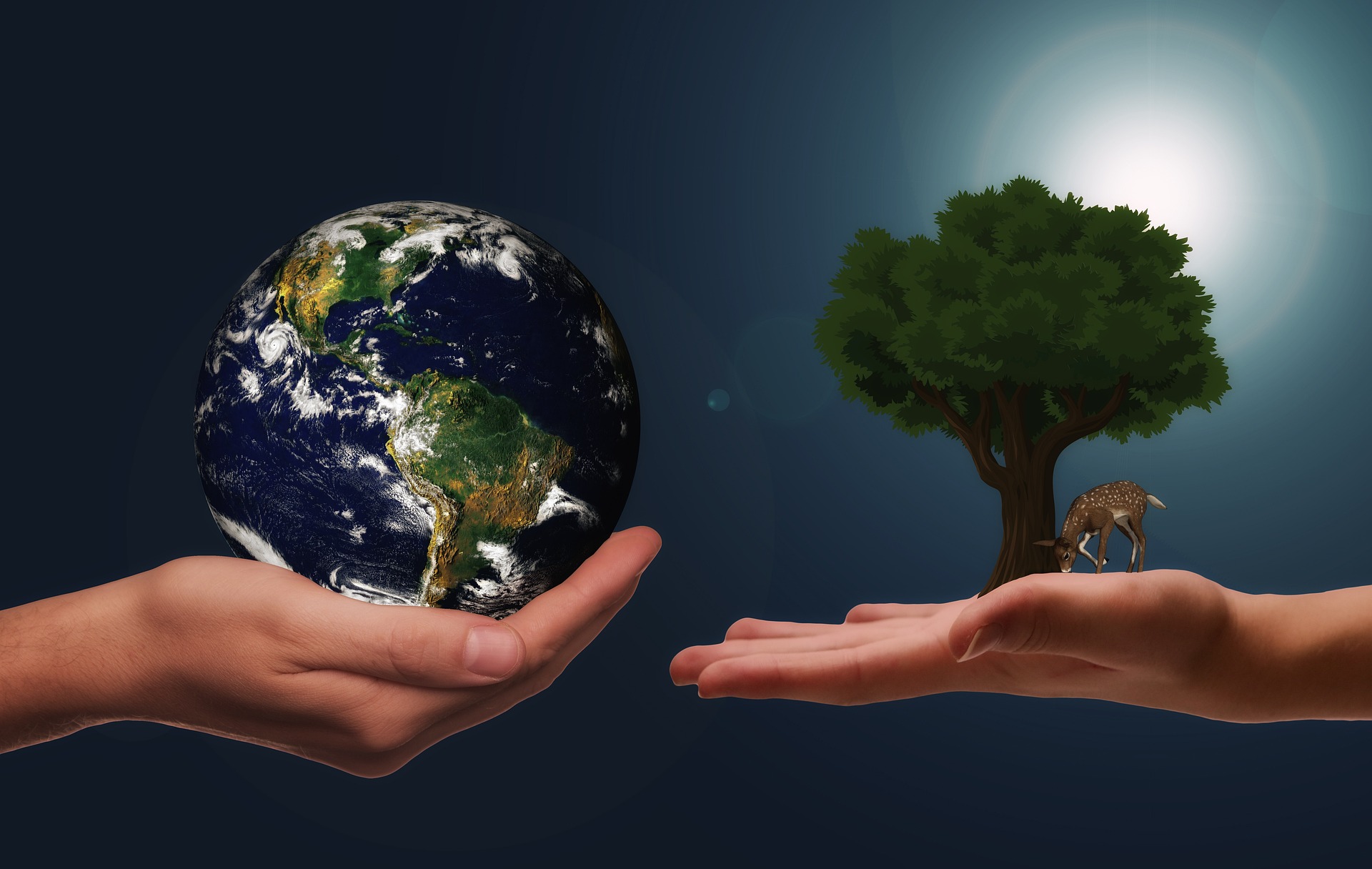Why Recycle: Unveiling the Art of Green Living
Hey there, fellow Earth dweller! Have you ever wondered why recycle bins are a thing, right next to trash cans? Or perhaps you’ve pondered why your eco-conscious friend insists on composting coffee grounds instead of tossing them in the trash with a dramatic flourish? Well, welcome to the world of recycling, where discarded items get a second chance at life, and environmental superheroes wear capes made of reused materials (figuratively speaking, of course). Let’s embark on a journey through the quirky and eco-friendly realm of recycling to uncover the secrets of why recycling is more than just a trend—it’s a way of life!
You see, recycling is like the ultimate magic trick that transforms old, worn-out stuff into shiny, new treasures without waving a wand. It’s a bit like turning a pumpkin into a golden carriage, but instead of fairy godmothers, we have recycling centers and some clever science.
Now, you might be asking, “Why bother? Can’t I just toss everything in the trash and let the garbage truck whisk it away to the mystical land of ‘out of sight, out of mind’?” Well, my friend, that’s where the adventure begins. Recycling isn’t just about saving the environment (although that’s a pretty big deal), but it’s also about saving resources, energy, and even money. Plus, it’s your chance to join the ranks of eco-warriors and impress your friends with your green knowledge. So, fasten your seatbelt and get ready to dive deep into the exciting world of recycling, where the journey is just as rewarding as the destination.
The Journey of Recycling: Unraveling the Process
A Deep Dive Into Recycling
Think about it, does a soda can know it has the potential to be reincarnated? Or does a newspaper envisage its future as a cereal box? Silly as it sounds, that’s recycling magic! It’s turning yesterday’s soda can into today’s bicycle frame, and yesterday’s paper into today’s cereal box.
The Basic Steps of Recycling
But how does this magic happen, you ask? Simple! It starts with the collection, sorting, and processing to make recycled materials, and finally, manufacturing them into new products. And voila! Your soda can just got a new lease of life.
Decoding the Importance of Recycling: Unmasking its Superpowers
Pondering the importance of recycling is like questioning the necessity of food or water. Spoiler alert: they’re both vital to our survival and well-being. But, just as one can’t survive on bread alone, our environment can’t thrive on recycling alone. It is, however, an integral piece of a much larger puzzle.
The Environmental Impact: Our Planet’s Lifeline
Firstly, we must recognize that recycling is the Batman of our ecological Gotham City. It silently swoops down and combats the environmental villains of waste and pollution.
Reduction in Waste and Landfills: Saving our Green Spaces
Every item we recycle is a sigh of relief for our landfills and incinerators. Landfills are like the villains of our green spaces. They are vast, malodorous scars on the landscape, the nemeses of biodiversity. By recycling, we are reducing the quantity of waste dumped into these sites and decreasing the production of harmful methane gases. Picture each recycled item as a miniature superhero battling the landfill villains, one plastic bottle at a time!
Combatting Climate Change: Recycling, the Climate Warrior
Think of climate change as the ultimate supervillain. With its arsenal of greenhouse gases and rising temperatures, it’s threatening our very existence. Here, recycling enters as our trusted ally. It reduces the need for new raw materials, thus diminishing the amount of greenhouse gases emitted during production processes. In a way, recycling is like our global climate warrior, wielding its shield against the onslaught of climate change.
The Economic Perspective: More than Meets the Eye
In the grand scheme of things, recycling is not just about greener pastures but also about greener pockets. It’s a multifaceted diamond, reflecting both ecological and economic benefits.
Job Creation: From Waste to Wages
Intriguingly, recycling is a prolific job creator. It’s been shown that recycling and recycling-related industries generate considerably more jobs than waste management alone. Just imagine, by throwing that newspaper into the recycling bin instead of the trash can, you might be helping someone pay their bills!
Economic Efficiency of Recycling: Turning Trash into Treasure
Moreover, recycling is economically efficient. It’s the alchemist of the modern era, morphing waste into valuable resources, and what’s more, it’s cost-effective. It minimizes the need for new raw materials, reducing the overall manufacturing cost. So, you see, when we recycle, we save the planet and make financial sense. Now, that’s what I call a win-win!
Beyond the Basics: Lesser-Known Advantages of Recycling: Unveiling the Hidden Gems
Recycling is more than just a solution to waste management and environmental preservation. It holds a treasure trove of lesser-known advantages that often fly under the radar. Let’s dive deeper into these hidden gems and discover the remarkable impact recycling has on various aspects of our lives.
Conserving Natural Resources: The Guardians of Earth’s Bounty
Prevention of Habitat Destruction: Protecting Home and Hearth
One of the lesser-known benefits of recycling is its role in preventing habitat destruction. By reducing the demand for raw materials through recycling, we can help preserve precious ecosystems and protect the natural habitats of countless species. It’s like telling Mother Nature, “Keep your gold; we’ve got old newspapers and plastic bottles to transform into new treasures!”
Sustaining Biodiversity: Nurturing the Web of Life
Recycling also plays a vital role in sustaining biodiversity. When we recycle, we lessen the need to extract resources from vulnerable habitats, reducing the negative impact on biodiversity. By minimizing habitat destruction and preserving the delicate balance of ecosystems, recycling contributes to the well-being of countless plant and animal species. It’s like being a guardian of the web of life, ensuring a harmonious coexistence with nature.
Saving Energy: The Powerhouse of Efficiency
Reduction in Production Costs: Dollars and Cents
Recycling is a powerhouse of energy savings. Not only does it contribute to a greener environment, but it also brings financial benefits. Recycling materials requires less energy than extracting, refining, and processing new raw materials. By utilizing recycled materials in manufacturing processes, industries can reduce production costs, enhancing economic efficiency. It’s a win-win situation where energy conservation meets cost savings.
Influence on Renewable Energy: Paving the Way for Sustainability
Another captivating aspect of recycling is its positive influence on renewable energy. As we recycle and repurpose materials, we indirectly contribute to the growth of renewable energy sources. For instance, recycling organic waste can be transformed into bioenergy, reducing reliance on fossil fuels. Additionally, using recycled materials to construct renewable energy infrastructure, such as solar panels and wind turbines, helps foster a more sustainable energy future. Recycling becomes the bridge that connects resource conservation and renewable energy development.
Promoting a Circular Economy: Closing the Loop
Recycling is crucial in transitioning from a linear economy to a circular economy. In a circular economy, resources are used for as long as possible, and waste is minimized. By recycling, we actively participate in this paradigm shift. Through recycling, materials are given new life, reducing the need for extraction, manufacturing, and disposal. It’s a transformative concept that aims to create a regenerative and sustainable economic model.
Encouraging Innovation: Where Creativity Meets Sustainability
Recycling inspires innovation. As we strive to find more efficient and effective ways to recycle, new technologies and processes emerge. From advanced sorting systems that use artificial intelligence to novel methods for recycling plastics, the recycling industry fosters a culture of creativity and ingenuity. By supporting recycling initiatives, we contribute to the ongoing development of innovative solutions that address environmental challenges and create a more sustainable future.
In conclusion, recycling encompasses a wealth of lesser-known advantages beyond waste reduction. By conserving natural resources, protecting biodiversity, saving energy, promoting a circular economy, and encouraging innovation, recycling becomes a catalyst for positive change. Let’s continue to unlock and appreciate these hidden gems, embracing recycling as a powerful tool for a greener and more sustainable world.
The Global Impact of Recycling: Uniting Nations for a Sustainable Future
Recycling is a global endeavor, transcending borders and fostering cooperation among nations. Its impact goes beyond local communities, making a significant difference on a global scale. Let’s explore the global implications of recycling and discover which countries are leading the way in this green revolution.
Recycling Across Borders: A Collaborative Effort
Role in International Trade: A Sustainable Exchange
Recycling plays a crucial role in international trade. The exchange of recyclable materials across borders supports global recycling efforts and encourages sustainability on a broader scale. Countries with abundant recycling resources can export materials to nations that require them for manufacturing processes. This symbiotic relationship reduces the strain on natural resources and promotes a more balanced distribution of recycling efforts worldwide. It’s a sustainable exchange that brings nations closer together in the pursuit of environmental preservation.
Aiding Developing Countries: Empowering through Recycling
Recycling has the potential to transform the economies of developing countries. Many of these nations benefit from importing recycled materials, which serve as valuable resources for local industries. These countries can reduce their reliance on expensive raw material imports and stimulate economic growth by utilizing recycled materials. Recycling provides an opportunity for developing nations to participate in the global market, contributing to their sustainable development and improving the livelihoods of their communities.
Pioneering Nations: Leaders in Recycling
While recycling is a collective effort, several nations have emerged as pioneers in the field, setting examples for others to follow. These countries have implemented robust recycling infrastructure, innovative policies, and engaged communities to achieve impressive recycling rates. Here are a few nations leading the way in recycling:
Germany: The Recycling Trailblazer
Germany has long been recognized as a recycling champion. The country boasts one of the highest recycling rates globally, with a well-established waste separation, collection, and processing system. Germany’s success can be attributed to comprehensive legislation, efficient waste management practices, and a strong culture of environmental responsibility. The country’s dedication to recycling has set a benchmark for others to strive towards.
South Korea: A Model for Waste Management
South Korea has made remarkable strides in waste management and recycling. The nation has achieved high recycling rates through rigorous policies, public awareness campaigns, and innovative technologies. South Korea emphasizes waste separation, encourages recycling education, and invests in advanced recycling facilities. It inspires countries aiming to enhance their waste management practices and build a sustainable recycling infrastructure.
Sweden: Shaping a Circular Economy
Sweden has embraced recycling and sustainability as core values. The nation is renowned for its waste-to-energy programs, where non-recyclable waste is converted into renewable energy sources. Sweden’s commitment to resource efficiency, waste reduction, and innovation has propelled it toward a circular economy. Sweden has achieved impressive recycling rates by prioritizing recycling while significantly reducing landfill waste. It exemplifies the transformative potential of recycling in creating a sustainable future.
Global Collaboration: A Unified Approach
To maximize the global impact of recycling, collaboration among nations is crucial. Sharing best practices, exchanging knowledge, and collectively addressing recycling challenges can propel the world toward a greener future. International organizations, such as the United Nations Environment Programme and the World Trade Organization, play a vital role in fostering global cooperation and promoting sustainable recycling practices worldwide. Through mutual support and collective action, countries can overcome barriers, scale up recycling efforts, and create a global network committed to environmental preservation.
In the realm of recycling, borders blur, and nations unite under the common goal of sustainability. By embracing recycling, countries can contribute to a global ecosystem of resource conservation, economic empowerment, and environmental protection. Together, we can build a brighter future for generations to come.
Breaking Down Myths About Recycling: Separating Fact from Fiction
Misconceptions about recycling abound, often clouding the true value and impact of this essential practice. It’s time to dispel the myths and shed light on the realities of recycling. Let’s separate fact from fiction and address some common misunderstandings surrounding recycling.
Clearing Common Misconceptions
Myth: Recycling Doesn’t Make a Significant Impact
One prevalent myth is that individual recycling efforts don’t make a significant difference in the grand scheme of things. However, the collective impact of recycling should never be underestimated. Every single recycled item adds up, contributing to the overall reduction of waste and the conservation of resources. The accumulation of individual actions creates a powerful ripple effect, leading to a substantial positive impact on the environment.
Myth: All Materials Are Recyclable
Another common misconception is that all materials can be recycled. While recycling technology advances, not all materials are currently recyclable due to various factors such as market demand, technological limitations, or contamination concerns. Understanding the specific materials that can be recycled in your area is essential. It’s crucial to follow local recycling guidelines and educate oneself about what can and cannot be recycled to ensure proper waste management.
Myth: Recycling Is Too Time-Consuming and Complicated
Some individuals may shy away from recycling due to the perception that it is time-consuming and complicated. However, recycling has become more convenient and accessible than ever before. Many communities provide curbside recycling programs, making it as simple as separating recyclables from other waste. Recycling centers and drop-off locations are widely available, providing convenient options for recycling items that cannot be included in the regular curbside collection. With a little effort to familiarize oneself with local recycling practices, recycling can easily become a seamless part of daily life.
Myth: Recycling Is Not Cost-Effective
There is a misconception that recycling is not economically viable and poses a financial burden. However, the reality is that recycling offers economic benefits on multiple fronts. Recycling helps reduce the need for extracting raw materials, saving costs associated with extraction, processing, and transportation. It also generates revenue and job opportunities within the recycling industry. Moreover, recycling can help lower waste management costs by reducing the volume of waste sent to landfills and incinerators. When implemented effectively, recycling can be a financially sustainable practice benefiting individuals and communities.
Countering Negative Narratives
To counter these myths, it’s crucial to emphasize the significance and positive impact of recycling. By spreading awareness and debunking misconceptions, we can inspire a shift in attitudes and promote a culture of responsible waste management.
We must remember that recycling is not solely about individual actions but also encompasses systemic changes. It requires collaboration among individuals, businesses, and governments to create an infrastructure that supports recycling initiatives, improves recycling technology, and increases market demand for recycled materials. By working together, we can overcome the challenges associated with recycling and unlock its full potential.
Education and awareness are key to dispelling myths and empowering individuals to make informed decisions. Engaging in conversations, sharing success stories, and highlighting the tangible benefits of recycling can motivate others to participate and strengthen the collective impact of recycling efforts.
So, let’s break down the barriers of misconception and embrace recycling as an integral part of our sustainable future. Through accurate information and shared commitment, we can transform recycling into a universally embraced practice that drives positive change for our planet and future generations.
How You Can Contribute: A Practical Guide
Starting at Home
Best Practices for Recycling at Home
Wondering how to recycle effectively at home? Remember the mantra: Reduce, Reuse, Recycle. Picture it as the holy trinity of living a green life.
Recycling in the Community
How to Initiate a Recycling Program
Start a recycling program in your community. It’s simple – just bring together a group of interested folks, plan how to collect and sort waste, and then work with local recycling centers.
Innovations in Recycling: A Look Ahead
Technology and Recycling
Future Prospects of Recycling
Keep an eye out for new and exciting recycling technologies. Innovations like AI-powered recycling sorters or biotechnologies that recycle plastics are on the horizon. Remember, we’re just at the beginning of the recycling journey.
Conclusion: The Recycling Revolution
And there you have it. Your comprehensive recycling guide. The bottom line? Recycling matters. It makes a difference to our world, economy, societies, and future. It’s a small step with a big impact. So why not take the leap and join the recycling revolution today?
Frequently Asked Questions
- Why is recycling important? Recycling is crucial because it helps reduce pollution, conserve natural resources, save energy, reduce waste, and create jobs.
- What materials can be recycled? Materials such as paper, glass, metal, plastics, textiles, and electronics can be recycled.
- How does recycling affect climate change? Recycling reduces the need for extracting, refining, and processing raw materials, all of which create air and water pollution and release greenhouse gases.
- How can I contribute to recycling? You can contribute by practicing the 3Rs: Reduce, Reuse, and Recycle. Also, encourage your community to participate in recycling activities.
- What are some misconceptions about recycling? Some misconceptions include believing recycling doesn’t make a difference or that all materials are recyclable. It’s important to educate oneself and others about proper recycling practices.





Pingback: Why is Recycling Important? A Definitive Guide - Eco Life Wise
Pingback: Benefits of Recycling: Maximizing Your Impact for a Greener Planet - Eco Life Wise
Pingback: Composting Toilets: From Waste to Wonder and Fertilizer Gold!
Pingback: Recycling for Kids: Discover the Secrets of Saving the Planet
Pingback: What Is A Green Building? | Eco Life Wise
Pingback: Examples of Natural Resources: Unearthing Earth's Treasures | Eco Life Wise
Pingback: Energy Efficient Homes: Your Ultimate Guide to Greener Living | Eco Life Wise
Pingback: Vegan Transition Guides: 10 Handy Tips | Eco Life Wise